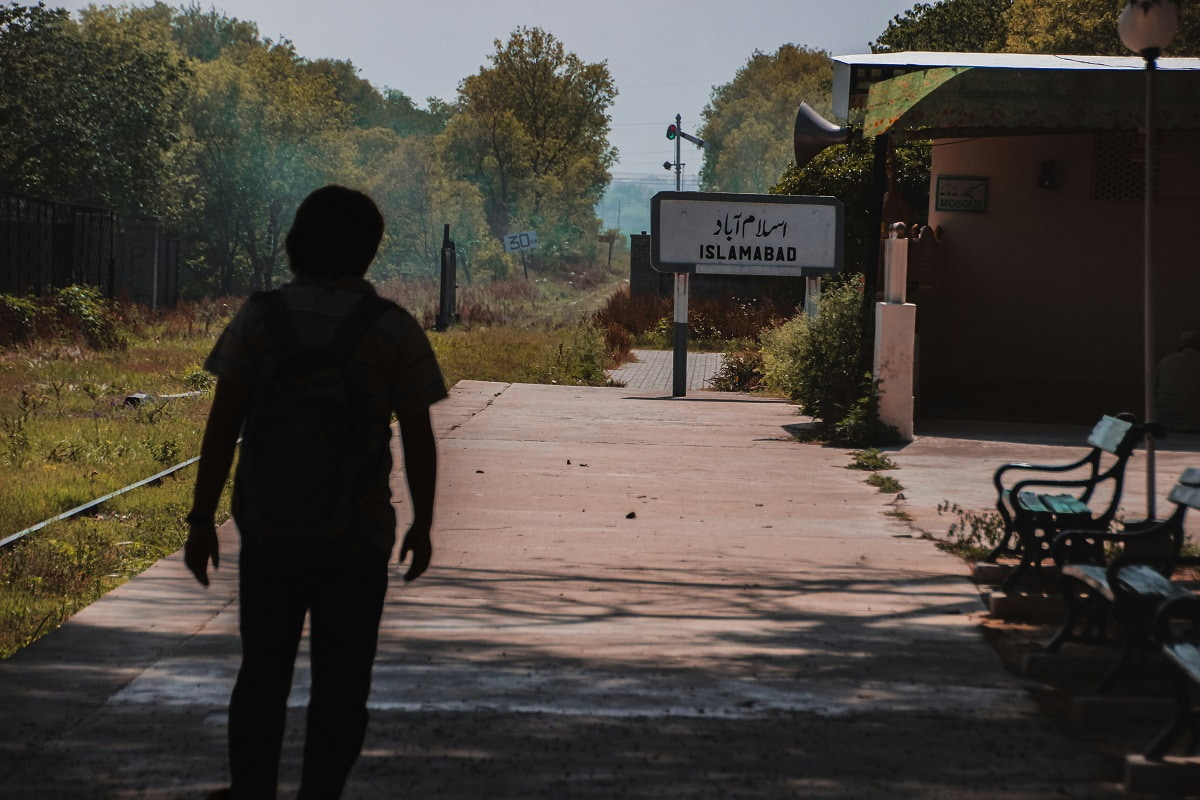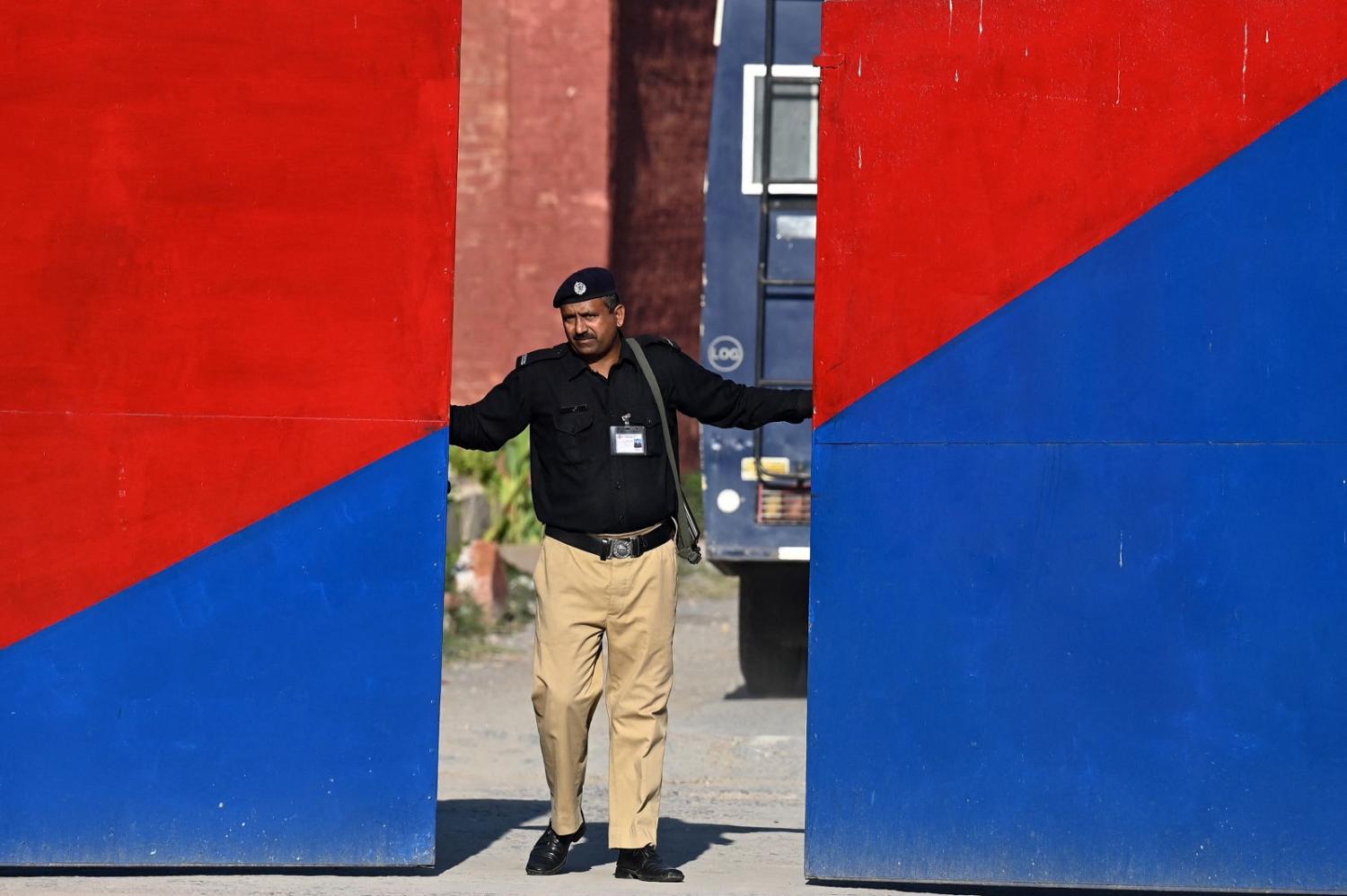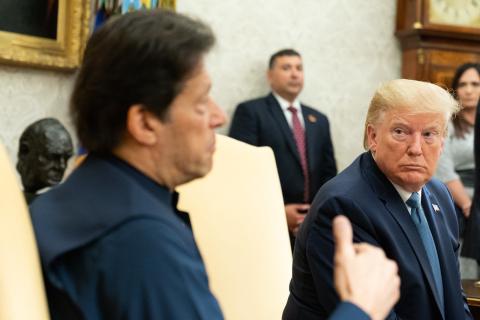With the Pakistan general elections due to take place on Thursday, the country’s former prime minister Imran Khan has been sentenced to ten years in jail by one court and 14 years by another. The verdicts in both cases mean that Khan has been disqualified from contesting elections for the next five to seven years.
The South Asian nation of 250 million people is exercising its right to vote at a time when the country is beset by multiple challenges. Plunged into political turmoil in April 2022 when Khan’s government was removed as a result of a no-confidence vote, Pakistan’s already significant financial and security woes deepened. With the country’s economy running on foreign loans, Pakistan averted the risk of default on its foreign debt obligations by signing a $3 billion deal with the International Monetary Fund (IMF) in June last year.
The biggest challenge, however, is on the security front – both internally and externally. Internally, the country is at war with Islamist militants and separatist groups. Externally, the challenge escalated on 16 January when neighbouring Iran launched an airstrike targeting a jihadist group in Pakistan’s southwestern Balochistan province, which borders Iran. Pakistan conducted retaliatory strikes on 18 January, targeting a hideout of Baloch separatists in Iran. Though both nations have restored diplomatic ties following their tit-for-tat strikes, the trust between the neighbours has been severely damaged.
To overcome these challenges, Pakistan needs genuine leadership. Such leadership will only come through free and fair elections. For this to happen, every political party must be provided a level playing field to run its electoral campaign across the country. Critics see the verdicts disqualifying Imran Khan ahead of the elections as part of an alleged sidelining by the military establishment of Khan and his Pakistan Tehreek-e-Insaf (PTI) party in favour of the Pakistan Muslim League-Nawaz (PML-N) led by his rival, former prime minister Nawaz Sharif. In an article attributed to Imran Khan and published in The Economist in January, Khan warned that the 8 February polls could be a farce because his party was being unfairly muzzled.

Pakistan is widely regarded as a “controlled democracy” in which the military generals have been calling the shots for the past seven decades. The powerful security establishment still holds the key cards of power in Islamabad. On removal of his government in April 2022, Khan accused the military establishment of pursuing a US-led “foreign conspiracy” against him over his independent foreign policy. (The United States denied the allegation of American interference.) The former international cricket star, however, managed to turn a leaked cipher (or diplomatic document) that contained a threat from the United States to oust Khan’s government into a potent weapon of political martyrdom. One of his sentences was for a breach of Pakistan's official secrets laws relating to his burnishing of the document.
Since the removal of his government, Khan and his party have been facing the ire of the establishment, which has been a king-maker in the country’s political history. Khan’s PTI has been pushed to the wall since his engagement in open opposition with the security establishment.
The incarcerated Khan is still the most popular leader in Pakistan. However, he has been sidelined and his party fragmented, with many PTI officials and workers either in jail or facing trial. PTI will still contest the 8 February election, even after the country’s Supreme Court ruled that the party’s electoral symbol, a cricket bat, could not be used, amid a state crackdown on activists. Critics have raised questions about the credibility of the upcoming poll and dubbed it a “selection”.
It is a fact that most of Pakistan’s political parties and leaders have been brought up in the nursery of the military establishment in the country’s controlled democracy, and Imran Khan is no exception. Khan has also been the child of the establishment whose support was crucial in his electoral win in 2018. It was also the establishment that kept him in power despite his slim majority in the parliament. And it was the establishment that was allegedly behind his ouster from the office of prime minister in April 2022.
Pakistan has witnessed the tragic end of popular leaders. Former prime minister Zulfiqar Ali Bhutto was hanged in 1979 by a military dictator, General Zia-ul Haq. Bhutto’s daughter, Benazir Bhutto, the country's first woman prime minister, was assassinated during an election rally in 2007 under the General Pervez Musharraf administration. Today’s most popular Pakistani leader, Imran Khan, has already survived an assassination attempt in November 2022.
Pakistan’s power game trajectory has never been predictable. Anything could happen here – even a postponement of the 8 February polls for security reasons. And if that happens, the country could witness caretaker ruling for an extended period.

